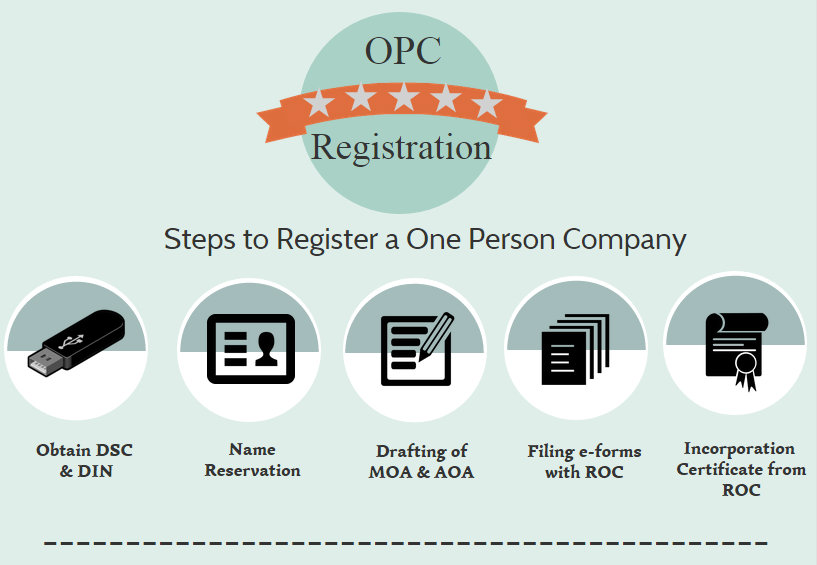One Person Company has been newly introduced in the Companies Act, 2013.
Features of One Person Company
Individuals run it, yet OPC’s are separate legal entities similar to that of any registered corporate. It must have only one member at any point in time and may have only one director. The member and nominee should be natural persons, Indian Citizens, and residents in India. The term “resident in India” means a person who has stayed in India for a period of not less than 182 days during the immediately preceding calendar year. One person cannot incorporate more than one OPC or become the nominee in more than one OPC. If a member of OPC becomes a member in another OPC by virtue of his being the nominee in that OPC, then within 180 days, he shall have to meet the eligibility criteria of being a member in one OPC. No minor shall become a member or nominee of the One Person Company or hold a share with beneficial interest. Such a company cannot be incorporated or converted into a company under section 8 of the Companies Act, 2013. No such company can convert voluntarily into any kind of company unless 2 years have expired from the date of incorporation, except in cases where capital or turnover threshold limits are reached. An existing private company is other than a company registered under section 8 of the Act that has paid up share capital of Rs. 50 Lakhs or fewer or average annual turnover during the relevant period is Rs. 2 Crores or fewer may convert itself into one Person Company by passing a special resolution in the general meeting.
Rules for Incorporating One Person Company
Only citizens of India can start a One Person Company in India or person resident in India, i.e., a person who stayed in India for a period of not less than One Hundred and Eighty days. A minor shall not become a member or nominee of the One Person Company or can hold a share with beneficial interest. No such company can convert voluntarily into any kind of company unless two years have expired from the date of incorporation of One Person Company, except when the threshold limit (paid-up share capital) is increased beyond fifty lakh rupees or its average annual turnover during the relevant period exceeds two crore rupees.
Steps in Registration of One Person Company in India
Four Simple Steps to register your One Person Company:
Reservation of Company Name
The Prefix – should be unique and should not resemble any of the existing company names. The suffix – should reflect the business of your company.
Impact of OPC in India
The introduction of the concept of One Person Company has created a lot of confidence for the layman to think about starting his own company. The reason behind this is the low cost for registering, limited liability, Corporate Identity, and not much corporate compliance has to be maintained. Most of the Proprietor firms are now being converted into One Person companies. It encourages the entrepreneurs to start their own companies and to run his business without the intervention of third parties. It creates a favorable position for laymen to think about starting a company, which boosts our country’s economy.
So, to conclude, it is advisable for a small businessman to start an OPC and get a Corporate identity and Brand recognition without spending much cost with other registrations. Related Readings-
Advantages and Disadvantages of One Person Company (OPC) How to Start A One Person Business? Conversion of Private Company into a One Person Company Difference between MOA and AOA The Ultimate Revelation of Benefits of Limited Liability Partnership Over Private Limited Company 7 Effective Tips to Create a Successful Business Plan for Your Company

